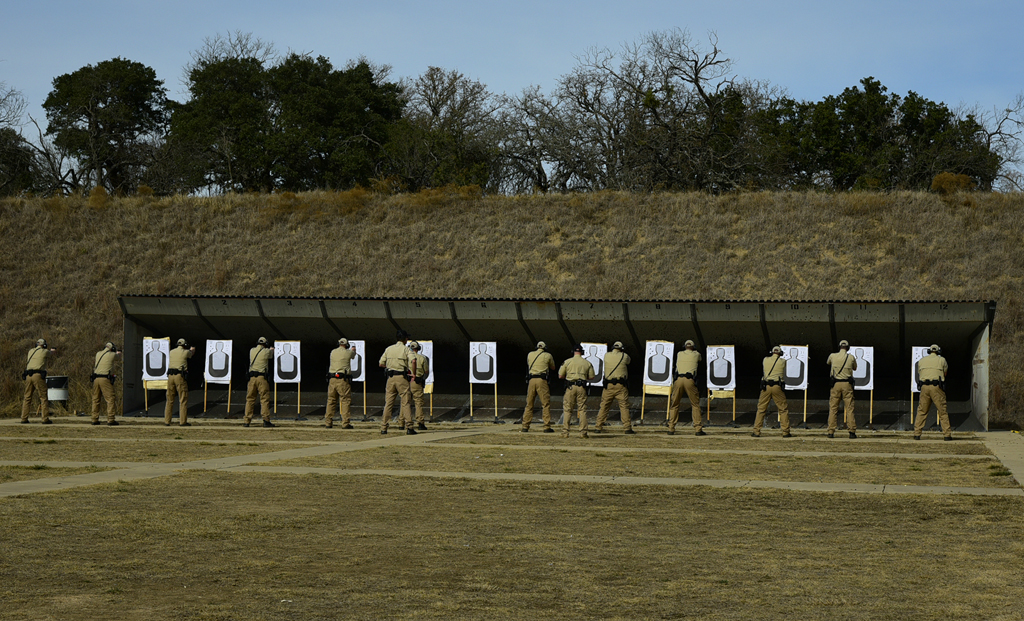by John Jefferson
It takes more than a hat, boots, gun belt and badge to become a Texas Game Warden. That also applies to all Texas peace officers, today — highway patrolmen, deputy sheriffs, city cops, jailors and Texas Rangers. It hasn’t always been that way.
A commission was established in 1965 to regulate Texas peace officers. But the agency wasn’t funded until September 1970. After a name change, the agency is now known as Texas Commission on Law Enforcement — TCOLE, for short.
In 1966, the Miranda case was decided requiring suspects to be advised of their rights before questioning (“You have the right to remain silent … etc.”). Some officers were ill-prepared for that. Working out of a small District Attorney’s office in the South Texas Brush Country as a newbie, if we wanted admissible evidence, you can imagine who got the dispatcher’s call around midnight to step through the blood and interview witnesses and suspects.
Additional officer training was required after 1970. A bullet hole in our pistol range roof was moot testimony to that. Ironically, we relied upon state game warden, Dub Murphey, in some sensitive situations. He was well-trained and dependable.
Nowadays, game warden and state park peace officer (SPPO) cadets selected to attend the Game Warden Training Academy west of Hamilton in Central Texas are thoroughly trained for seven months. Future academies will last eight months.
An extensive written application starts the process to become a game warden or SPPO. Then, interviews, background checks, physical, medical, psychological and swimming examinations are conducted.
Application deadline for the 2020 academy has already passed. Deadline for the 2021 academy and the number attending will be announced in the future. Eight hundred applications were submitted for the 2020 academy. Cadets are awaiting selection.
The physical test is strenuous, but passable for most in good shape. A warden’s work often presents many challenges requiring good physical condition. Cadets must pass a swimming test, too. Swimming lessons are made available at cadets’ expense for those requiring assistance.
Curriculum for the academy includes basic law enforcement subjects such as equipment, vehicle and boat operation, firearms training, defensive tactics. interrogation, game laws, species identification and the Texas Penal Code. Game wardens are certified peace officers and as such are required to enforce all Texas laws. But that’s just a start.
A quick scan of the schedule for the current class includes 69 different subjects, including trauma care, de-escalation, water rescue, courtroom demeanor, family violence, multiculturalism and media relations. As if that’s not enough, other subjects include dealing with mountain lions, bears and alligators! A modern game warden must be prepared for many situations.
It’s said that Texas wardens are the nation’s best trained and best equipped. Looking at the course schedule and the academy facilities certainly supports that. Situated on a Hill Country plateau, it is thoroughly modern with new cadet dormitories, classrooms, a gym and shooting range. Other facilities are planned.
Requirements are stiff, but the results are officers Texas can be proud of.
JJ





